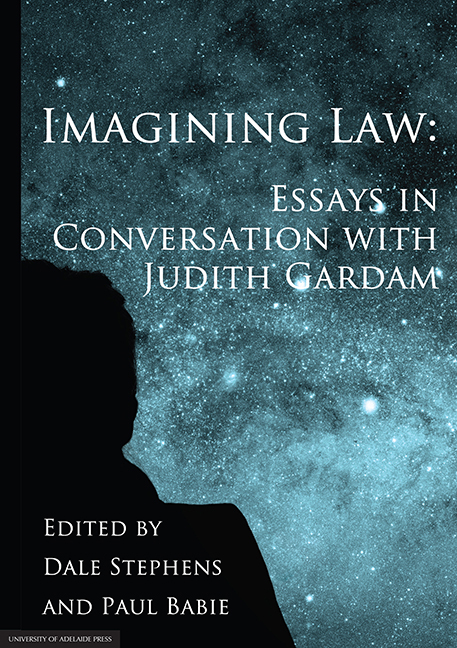Book contents
- Frontmatter
- Dedication
- Contents
- List of Contributors
- Acknowledgements
- 1 Introduction: Seeing Further over the Horizon – A World of Limitless Possibilities
- Part I
- Part II
- Part III
- Gender and Armed Conflict
- 5 Prosecuting Conflict-Related Sexual Violence Crimes: How Far Have We Progressed and Where Do We Go from Here?
- 6 The Construction of Knowledge about Women, War and Access to Justice
- 7 Laws, UFOs and UAVs: Feminist Encounters with the Law of Armed Conflict
- 8 An Alien's Review of Women and Armed Conflict
- 9 The Law of Armed Conflict and the Operational Relevance of Gender: The Australian Defence Force's Implementation of the Australian National Action Plan
- Gender and Feminist Concepts
- Theoretical Issues
- A Selected Bibliography
- Table of Cases and Materials
- Selected Index
8 - An Alien's Review of Women and Armed Conflict
from Gender and Armed Conflict
Published online by Cambridge University Press: 05 August 2017
- Frontmatter
- Dedication
- Contents
- List of Contributors
- Acknowledgements
- 1 Introduction: Seeing Further over the Horizon – A World of Limitless Possibilities
- Part I
- Part II
- Part III
- Gender and Armed Conflict
- 5 Prosecuting Conflict-Related Sexual Violence Crimes: How Far Have We Progressed and Where Do We Go from Here?
- 6 The Construction of Knowledge about Women, War and Access to Justice
- 7 Laws, UFOs and UAVs: Feminist Encounters with the Law of Armed Conflict
- 8 An Alien's Review of Women and Armed Conflict
- 9 The Law of Armed Conflict and the Operational Relevance of Gender: The Australian Defence Force's Implementation of the Australian National Action Plan
- Gender and Feminist Concepts
- Theoretical Issues
- A Selected Bibliography
- Table of Cases and Materials
- Selected Index
Summary
INTRODUCTION
Almost twenty years ago, our friend and colleague Judith Gardam offered an original and illuminating perspective on the law of armed conflict. She deployed the persona of an alien — filling in time during an intergalactic storm — for the purposes of reading the laws of armed conflict. Back in the person of a scholar of international humanitarian law (IHL), Judith then engaged in a conversation with the alien, comparing its observations on the texts alone with her understanding of how the law operates in practice. Judith's alien-scholar dialogue allowed her to illustrate the malleability of the legal concept of objectivity and the way that the law constructs particular realities while obscuring others. This striking approach was both playful and disconcerting. It revealed, among other things, the gendered nature of the law of armed conflict and its incorporation of Western images of femininity and masculinity.
Inspired by Judith's imaginative method, we reflect in this chapter on international developments over the last two decades which address the lives of women in the area of armed conflict. In 1997, when Judith was in dialogue with the alien, the primary relevant legal framework was that of IHL — notably the Hague and Geneva Conventions and Protocols. In the intervening years, the number of international legal lenses has multiplied. Human rights law, international security law and international criminal law now also regulate the situation of women in armed conflict. Moreover, the plight of women in conflict and its aftermath has achieved much greater political prominence. After sketching a range of issues that shape the situation of women in conflict, we focus on two international documents on this topic, adopted in 2013 by different United Nations institutions, and speculate on what Judith's alien might make of them.
WOMEN AND CONFLICT
Discussion of women and conflict invokes categories such as ‘conflict’, ‘armed conflict’ and ‘post-conflict’. The difference between these terms is, however, difficult to establish in any particular situation — violence typically seeps from periods of formal conflict into the ‘post-conflict’ phase. The term ‘post-conflict’, in particular, can mislead in the context of women's lives. It suggests a neat transition from a state of conflict to peace and implies that ‘post-conflict’ societies are distinct from other conflict scenarios.
- Type
- Chapter
- Information
- Imagining LawEssays in Conversation with Judith Gardam, pp. 171 - 194Publisher: The University of Adelaide PressPrint publication year: 2016



